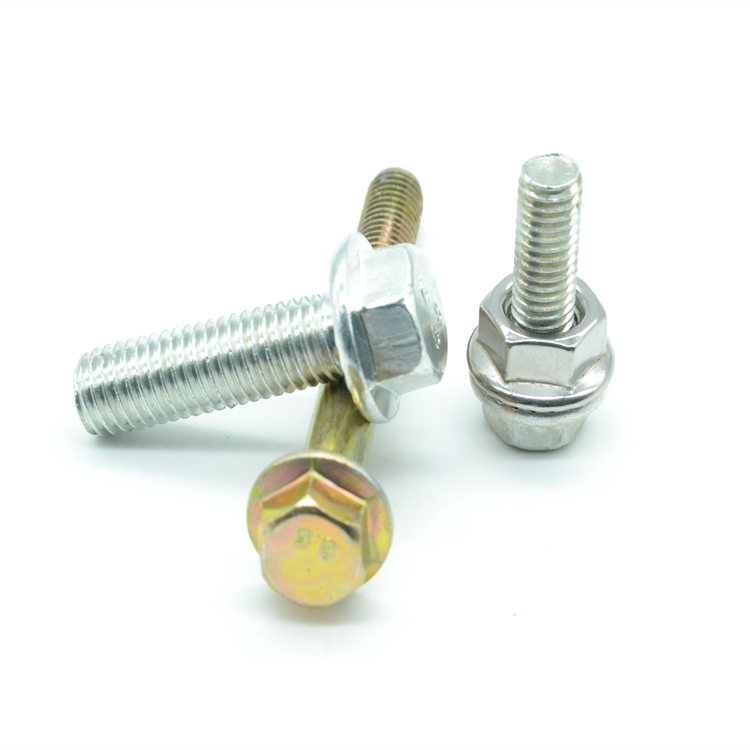alloy bolts
Sep . 13, 2024 09:23 Back to list
alloy bolts
Understanding Alloy Bolts A Comprehensive Guide
Alloy bolts are essential components in various industries, providing strength, durability, and resistance to corrosion. Used widely in construction, automotive, aerospace, and machinery applications, these bolts are engineered from a combination of metals that enhance their physical properties. This article will explore the significance of alloy bolts, their composition, advantages, and common applications.
Alloy bolts are made from a mixture of metals, typically including elements like nickel, chromium, molybdenum, and vanadium. The specific combination of these elements contributes to enhanced mechanical properties, including increased tensile strength and improved hardness. For instance, the addition of nickel increases toughness, while chromium enhances corrosion resistance. This tailored approach to metallurgy ensures that alloy bolts can withstand extreme conditions, which is crucial for applications that require high performance.
One of the primary advantages of alloy bolts is their superior strength-to-weight ratio. This means that, compared to regular steel bolts, alloy bolts can achieve the same performance standards while being lighter. This characteristic makes them particularly appealing in industries like aerospace, where reducing weight is essential for improved fuel efficiency and overall performance.
Corrosion resistance is another critical feature of alloy bolts. Many alloy bolts are coated or treated to protect against rust and degradation, especially in harsh environments. For example, stainless steel alloy bolts are commonly used in marine applications where they are exposed to saltwater, as they offer excellent resistance to corrosion. This property extends the lifespan of bolts, reducing maintenance costs and prolonging the integrity of structures and machinery.
alloy bolts

Another noteworthy aspect of alloy bolts is their versatility. They can be engineered to meet specific standards, such as ASTM and ISO, ensuring that they adhere to international quality and safety regulations. This flexibility allows manufacturers to produce bolts tailored to unique specifications and applications, making them suitable for a wide range of industries.
In addition to strength and durability, alloy bolts are easier to install compared to traditional fasteners. Many are designed with features that allow for better grip and reduced slippage during installation, which enhances the overall reliability of the assembly process. This ease of use can significantly reduce installation times and labor costs.
However, it’s important to note that while alloy bolts offer numerous advantages, they may come at a higher cost than standard bolts. The advanced metallurgy and engineering processes involved in manufacturing alloy bolts contribute to this price difference. Therefore, it is essential for manufacturers and engineers to consider the long-term benefits versus the initial investment when choosing fasteners for their projects.
In conclusion, alloy bolts represent a crucial innovation in fastening technology. With their superior strength, corrosion resistance, and versatility, they play a vital role across various industries. As technology continues to advance, the development of even more specialized alloy bolts will likely emerge, further enhancing their applications and performance. Whether in construction, automotive design, or aerospace engineering, the impact of alloy bolts is undeniable, symbolizing the ongoing evolution of materials science in facilitating safer and more efficient operations.
Latest news
-
Premium Phosphated Drywall Screws Supplier | Durable, Rust-Resistant
NewsAug.27,2025
-
Reliable Wire Bolts Suppliers | Quality Zinc Plated Fasteners
NewsAug.26,2025
-
Wire Bolts Suppliers: Durable & Reliable Fasteners for Every Project
NewsAug.25,2025
-
Premium Cabinet Bolts Supplier | Wholesale & Custom Solutions
NewsAug.24,2025
-
Reliable Axle Nuts Supplier | Quality & Precision Fasteners
NewsAug.23,2025
-
Durable Bolts for Lawn Mower Handle - Top Supplier & Manufacturer
NewsAug.22,2025
